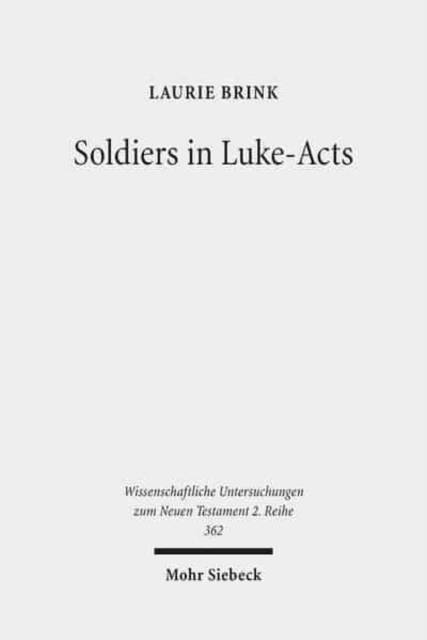
- Afhalen na 1 uur in een winkel met voorraad
- Gratis thuislevering in België vanaf € 30
- Ruim aanbod met 7 miljoen producten
- Afhalen na 1 uur in een winkel met voorraad
- Gratis thuislevering in België vanaf € 30
- Ruim aanbod met 7 miljoen producten
Zoeken
€ 93,95
+ 187 punten
Omschrijving
The author of Luke-Acts constructs a portrait of the Roman military that relies on a variety of literary stereotypes, anticipating that his authorial audience, familiar with the stereotypes, will bring their experience to bear in the process of more fully characterizing the soldiers. Expecting their antipathy, Luke upsets his authorial audience's expectations. Laurie Brink demonstrates that the soldiers, in fact, do not wholly live up to their bad reputations. Engaging, contradicting and transcending the literary stereotypes, Luke creates a progressive portrait of the Roman soldier that demonstrates the attitudes and actions of a good disciple, and that serves as a critique of the authorial audience's original response.
Specificaties
Betrokkenen
- Auteur(s):
- Uitgeverij:
Inhoud
- Aantal bladzijden:
- 222
- Taal:
- Engels
- Reeks:
- Reeksnummer:
- nr. 362
Eigenschappen
- Productcode (EAN):
- 9783161531637
- Verschijningsdatum:
- 1/03/2014
- Uitvoering:
- Paperback
- Formaat:
- Trade paperback (VS)
- Afmetingen:
- 155 mm x 231 mm
- Gewicht:
- 385 g

Alleen bij Standaard Boekhandel
+ 187 punten op je klantenkaart van Standaard Boekhandel
Beoordelingen
We publiceren alleen reviews die voldoen aan de voorwaarden voor reviews. Bekijk onze voorwaarden voor reviews.











